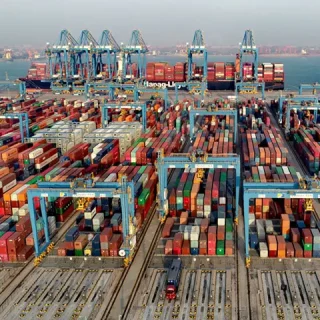Initially established in 2013 as a pilot zone for economic reform, the Shanghai Free Trade Zone (FTZ) has evolved into a popular site for bond issuance, particularly known as ‘pearl bonds’. This shift in focus from attracting foreign direct investment and facilitating trade to financialization has seen the zone house over 50,000 companies. However, recent government crackdowns have significantly altered the bond issuance landscape within the FTZ.
The rise of FTZ bonds began in earnest following the encouragement of the Ministry of Finance in 2017, allowing local governments and companies, both domestic and foreign, to raise debt funding through these securities. By the first half of 2023, bond issuance in the Shanghai FTZ surged to RMB66.4 billion ($9.3 billion), according to Fitch Ratings.
However, the landscape shifted in May 2023 when the People’s Bank of China issued “window guidance”, as reported by Bloomberg, halting the purchase of FTZ bonds by banks from issuers without actual business operations in the Shanghai FTZ. This move led to a significant slowdown in the issuance of these bonds, as many issuers were from different parts of China and no longer met the new criteria.
Sherry Zhao of Fitch Ratings notes that the government’s decision to tighten regulations was a response to the booming market and lack of sufficient controls, and it remains unclear whether these bonds will be revisited under more regulated conditions.
FTZ bonds, prior to the crackdown, offered an alternative means for local governments and companies to access onshore funding at lower costs compared to offshore issuance. These bonds, in contrast to offshore ‘dim sum’ bonds, allowed issuers to bypass higher costs and foreign exchange controls, although they came with more government regulation regarding the use of the funds raised.
The success of China FTZ bonds in Shanghai has been compared to initiatives like GIFT City in India, offering preferred access to domestic markets and greater flexibility for offshore investors and onshore issuers. However, following the recent regulatory changes, the future of China FTZ bonds is uncertain, though quality issuers may still find them attractive in the medium term.
Amidst this uncertainty, some international companies like Singapore-based CapitaLand have continued to issue FTZ bonds, seizing the opportunity to diversify their debt and benefit from lower interest rates in China compared to Singapore. These developments suggest that despite domestic restrictions, international interest in FTZ bonds may persist, driven by factors like interest rate differentials and market liquidity.
This shift in China’s approach to FTZ bonds is seen as part of the broader trend of the internationalization of the renminbi, providing a platform that eases the impact of capital and foreign exchange controls. Although the recent crackdown has led mainland Chinese issuers to revert to traditional funding channels, the role of FTZ bonds in the global financial landscape continues to evolve.











